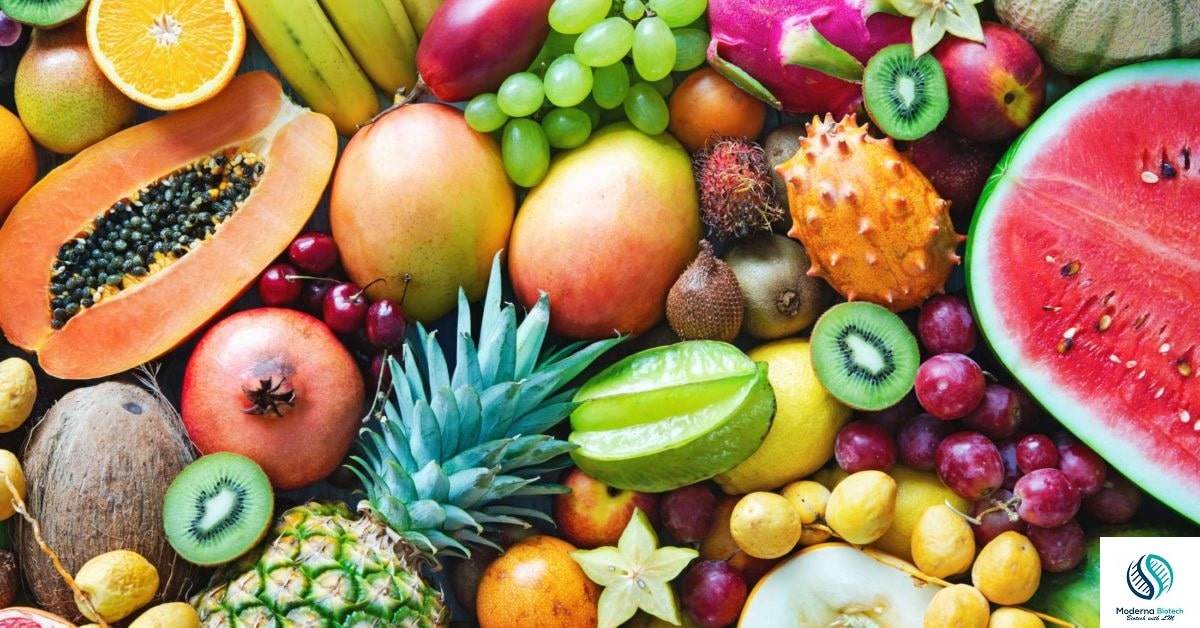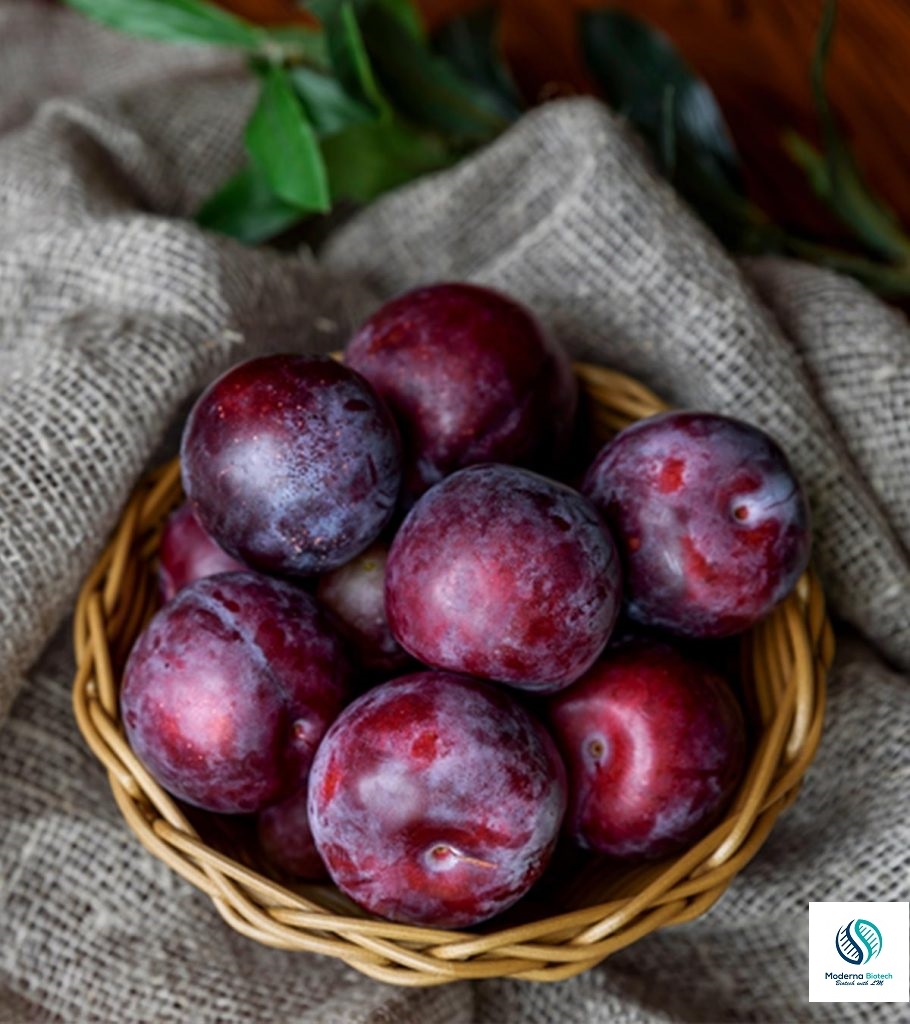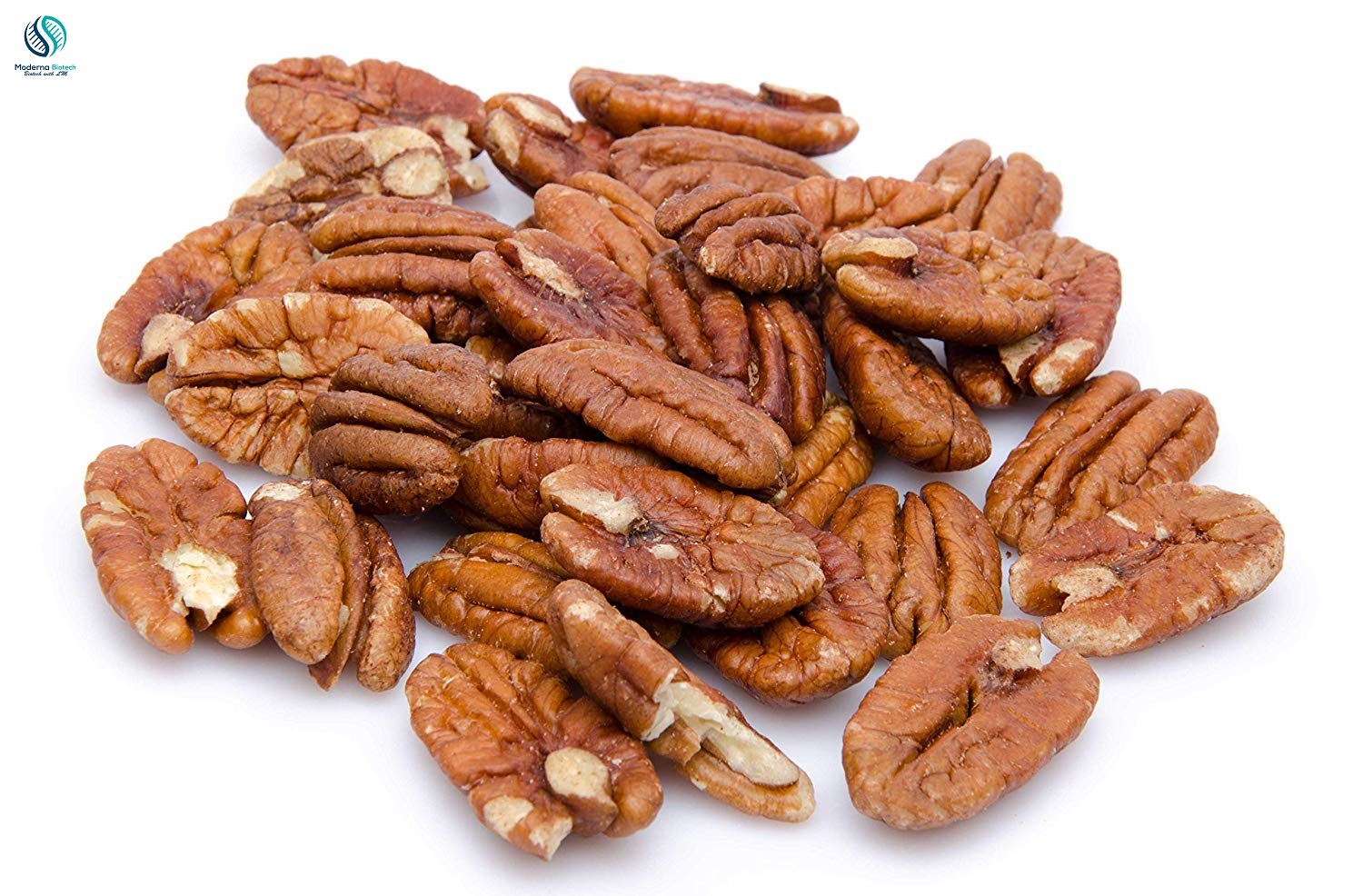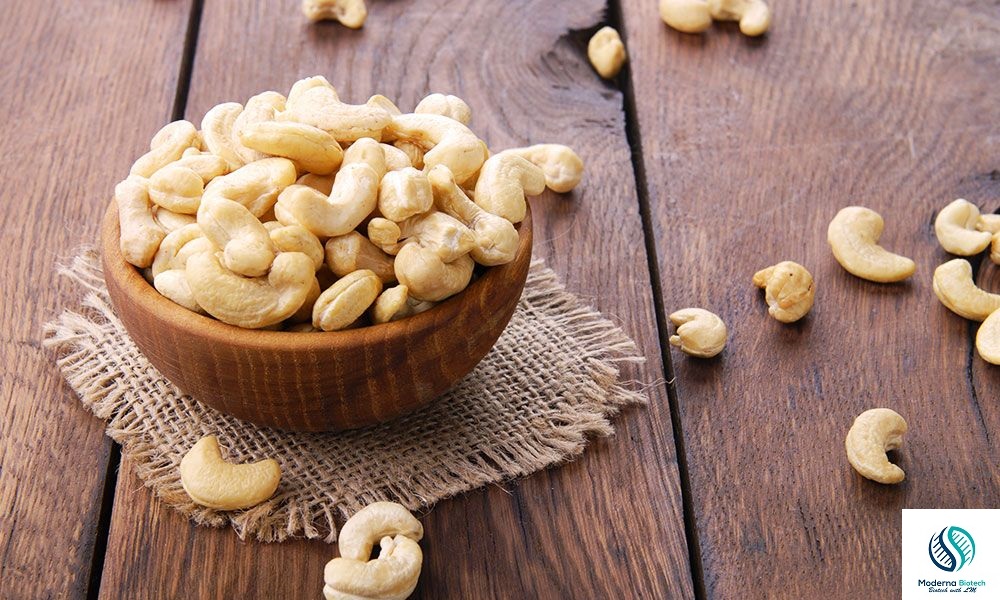
In the human diet, fruits played a most significant role They have a wide range of essential vitamins and nutrients that help a person to get energy and also helps him to cope with various diseases. Here in this article, you will find the nutritional importance of fruits in the human diet. Here is a list of the top 5 healthiest fruits you should eat.
The top 5 healthiest fruits and their nutritional importance
Nutritional importance of fruits in the human diet
1- Banana
- Bananas are tremendously healthy and delicious.
- They contain several vital nutrients and provide advantages for digestion, heart health, and weight loss.
- They are not only highly nutritious but highly suitable snack food.
Nutrients
- Bananas are among the world’s most prevalent fruits.
- Native to Southeast Asia, they are now grown in many warm areas of the world.
- Bananas differ in color, size, and shape.
- The most shared type of banana is the Cavendish, which is actually a sort of dessert banana. Green when unripe, yellows as it matures. (Nutritional importance of fruits in the human diet)
Potassium: 9% of the RDI
Vitamin B6: 33% of the RDI
Vitamin C: 11% of the RDI
Magnesium: 8% of the RDI
Copper: 10% of the RDI
Manganese: 14% of the RDI
Net carbs: 24 grams
Fiber: 3.1 grams
Protein: 1.3 grams
Fat: 0.4 grams
Each banana has only about 105 calories and involves almost entirely water and carbs. Bananas hold no fat and very little protein. Banana turns black because of the production of ethylene. Bananas are curved because of sunlight. Banana is seedless because its parent plant is triploid. Unripe bananas cause constipation because of the presence of lots of starch.
Bananas May Improve Digestive Health
The dietary fiber of bananas has been linked to numerous health benefits which include improved digestion.
An average-sized banana has about 3 grams of fiber which makes bananas a fairly good source of fiber.
Bananas contain two chief types of fiber:
Pectin: Decreases as the banana ripens.
Resistant starch: Found in unripe bananas.
Bananas May Aid Weight Loss
No study has rightly tested the effects of bananas on weight loss. However, bananas do have numerous characteristics that should make them a weight-loss-friendly food.
For starters, bananas have comparatively few calories. A normal banana has more than 100 calories — yet it is also very nourishing.
Eating more fiber from vegetables and fruits like bananas has recurrently been linked to lower body weight and weight loss (Nutritional importance of fruits in the human diet)
Bananas May Support Heart Health
Potassium is actually a mineral that is indispensable for heart health — especially it helps to control blood pressure.
Despite its importance, only a few people get adequate potassium in their diet.
Bananas are a great nutritional source of potassium. One normal-sized banana (118 grams) holds 9 percent of the RDI.
Unripe Bananas May Progress Insulin Sensitivity
Insulin resistance is the main risk factor for many of the world’s most serious diseases, counting type 2 diabetes.
Several studies show that 15–30 grams of resistant starch per day may recover insulin sensitivity by 33–50% in as few as 4 weeks.
Fresh bananas are chief sources of resistant starch. So, they may help progress insulin sensitivity.
Bananas May Improve Kidney Health
Potassium is crucial for blood pressure control and healthy kidney function.
As a good dietary source of potassium, bananas may be particularly beneficial for maintaining healthy kidneys.
One 13-year study in women demonstrates that those who ate bananas 2–3 times per week were 33 percent less expected to develop kidney disease.
2- Plums
- Plums are really nutritious, with a range of health benefits to offer.
- They hold many vitamins and minerals, along with fiber and antioxidants that may help reduce your risk of numerous chronic diseases.
- You can eat plums fresh or dried. Dried plums are also known as prunes improve several health conditions, counting constipation and osteoporosis.
Nutrients
Plums are comparatively low in calories but contain a reasonable number of important vitamins and minerals. One plum contains the following nutrients:
Calories: 30
Carbs: 8 grams
Fiber: 1 gram
Sugars: 7 grams
Vitamin A: 5% of the RDI
Vitamin C: 10% of the RDI
Potassium: 3% of the RDI
Copper: 2% of the RDI
Vitamin K: 5% of the RDI
Manganese: 2% of the RDI
Moreover, one plum gives a small number of B vitamins, phosphorus, and magnesium
They May Help to Lower one’s Blood Sugar:
Plums have characteristics that may help with blood sugar control.
Despite being fairly high in carbs, plums and prunes do not seem to cause a considerable rise in blood sugar levels after they’re eaten.
This is attributed to their likely increase in the levels of adiponectin. Adiponectin is a hormone that plays a role in the regulation of blood sugar.
Furthermore, the fiber in plums may be partly accountable for their effects on blood sugar. Fiber reduces the rate at which your body absorbs carbs after a meal which in turn causing blood sugar to rise progressively, rather than spike.
Plums and May Benefit Heart Health:
Consuming plums regularly may have a defensive effect on heart health.
They have been deliberated for their potential to decrease high blood pressure and cholesterol levels, which are the main risk factors for the heart.
The Bottom Line
Plums are a very healthful fruit and an excellent source of vitamins, minerals, fiber, and antioxidants.
In addition, they have several properties that may decrease the risk of many chronic diseases, such as osteoporosis, cancer, heart disease, and diabetes.
Moreover, they taste delicious and require little preparation, so they are easy to combine into your diet.
3-Grapes
- There are numerous varieties of grapes including green, red, black, yellow, and pink. Grapes usually grow in clusters and available in both seedless/seeded varieties.
- Across the world, Grapes are grown in temperate climates including Australia, Southern Europe, Africa, and North and South America. The popular grapes grown in the United States are from California.
- Grapes offer countless health benefits because of their high nutrient and content of antioxidants (Nutritional importance of fruits in the human diet)
Nutrition facts
Grapes are high in several important nutrients.
One cup (151 grams) of red or green grapes covers the following nutrients:
Calories: 104
Carbs: 27.3 grams
Protein: 1.1 grams
Fat: 0.2 grams
Fiber: 1.4 grams
Vitamin C: 27% of the Reference Daily Intake (RDI)
Vitamin K: 28% of the RDI
Thiamine: 7% of the RDI
Riboflavin: 6% of the RDI
Vitamin B6: 6% of the RDI
Potassium: 8% of the RDI
Copper: 10% of the RDI
Manganese: 5% of the RDI
Benefits of Grapes:
May Help Lower Blood Pressure
One cup (151 grams) of grapes holds 288 milligrams of potassium, which is 6 percent of the RDI.
This mineral is crucial for upholding healthy levels of blood pressure.
May Help Reduce Cholesterol
Compounds present in grapes may help protect us against high cholesterol levels by reducing cholesterol absorption.
Compounds present in grapes and red wine could protect against heart disease. Grapes may help lower blood pressure and cholesterol.
Decrease Blood Sugar Levels and Protect Against Diabetes
Grapes hold 23 grams of sugar 151 grams, which may make us wonder if they’re a good choice for individuals with diabetes.
Yet grapes are high in sugar, they have a low glycemic index. Furthermore, compounds in grapes may also protect against high blood sugar.
Contain Several Compounds That Benefit Eye Health
The plant chemicals found in grapes may keep against common eye diseases.
Grapes contain numerous compounds, for example, resveratrol, lutein, and zeaxanthin, that could protect against common eye diseases, counting age-related macular degeneration, cataracts and glaucoma.
May Improve Memory, Attention, and Mood
Grapes have essential nutrients that help us to boost our memory as well as making our brain healthy.
Grapes contain compounds that may improve memory, care, and mood and may protect against Alzheimer’s disease. However more human-based research is required to confirm some of these benefits.
Contain Many Nutrients Important for Bone Health
Grapes contain many minerals essential for bone health, counting calcium, magnesium, potassium, phosphorus, manganese as well as vitamin K.
Grapes contain many nutrients imperative for bone health which includes calcium, magnesium, phosphorus, and vitamin K.
Studies in rats have shown that grapes may have defensive effects on bones, but human studies are required to confirm these benefits.
4-Pecans (American walnut)
- They have a rich and buttery flavor and are a common constituent in appetizers, desserts, and main dishes alike.
- Although they claim a long list of vital nutrients, they’re also high in calories and fat, causing many to wonder whether they’re healthy.
Nutrients
Pecans have a rich number of important nutrients.
Particularly, they’re a good source of fiber, together with copper, thiamine, and zinc.
One ounce (28 grams) of pecans involves the following nutrients:
Calories: 196
Protein: 2.5 grams
Fat: 20.5 grams
Carbs: 4 grams
Fiber: 2.7 grams
Copper: 38% of the Daily Value (DV)
Thiamine (vitamin B1): 16% of the DV
Zinc: 12% of the DV
Magnesium: 8% of the DV
Phosphorus: 6% of the DV
Iron: 4% of the DV
Copper is a significant mineral involved in many features of our health, counting nerve cell function, immune health, and red blood cell production.
Also, thiamine, or vitamin B1, is indispensable for converting carbohydrates into energy to help fuel our body.
Zinc is another important mineral present in pecans, and it’s needed for immune function, as well as cell growth, brain function, and also wound healing.
5- CASHEWS
- Cashews are kidney-shaped seeds obtained from the cashew tree.
- Like most nuts, cashews may also help expand our overall health. They have been associated with benefits such as weight loss, improved blood sugar control, and a healthier heart.
Nutrients
Cashews have the most essential nutrients. One ounce (28 grams) of unroasted, unsalted cashews gives us around:
Calories: 157
Protein: 5 grams
Fat: 12 grams
Carbs: 9 grams
Fiber: 1 gram
Copper: 67% of the Daily Value (DV)
Magnesium: 20% of the DV
Manganese: 20% of the DV
Zinc: 15% of the DV
Phosphorus: 13% of the DV
Iron: 11% of the DV
Selenium: 10% of the DV
Thiamine: 10% of the DV
Vitamin K: 8% of the DV
Vitamin B6: 7% of the DV
Cashews are particularly rich in unsaturated fats. Unsaturated fats are a type of fats associated with lowering the risk of premature death and heart disease.
They are also low in sugar and contain nearly the same amount of protein as an equal quantity of cooked meat.
In addition, cashews contain an important quantity of copper. Copper is a mineral vital for energy production, healthy brain development, and a strong immune system. They are also a great source of manganese and magnesium. These nutrients are important for bone health.









Very good post! We will be linking to this great content on our website.Keep up the great
writing!
thanks